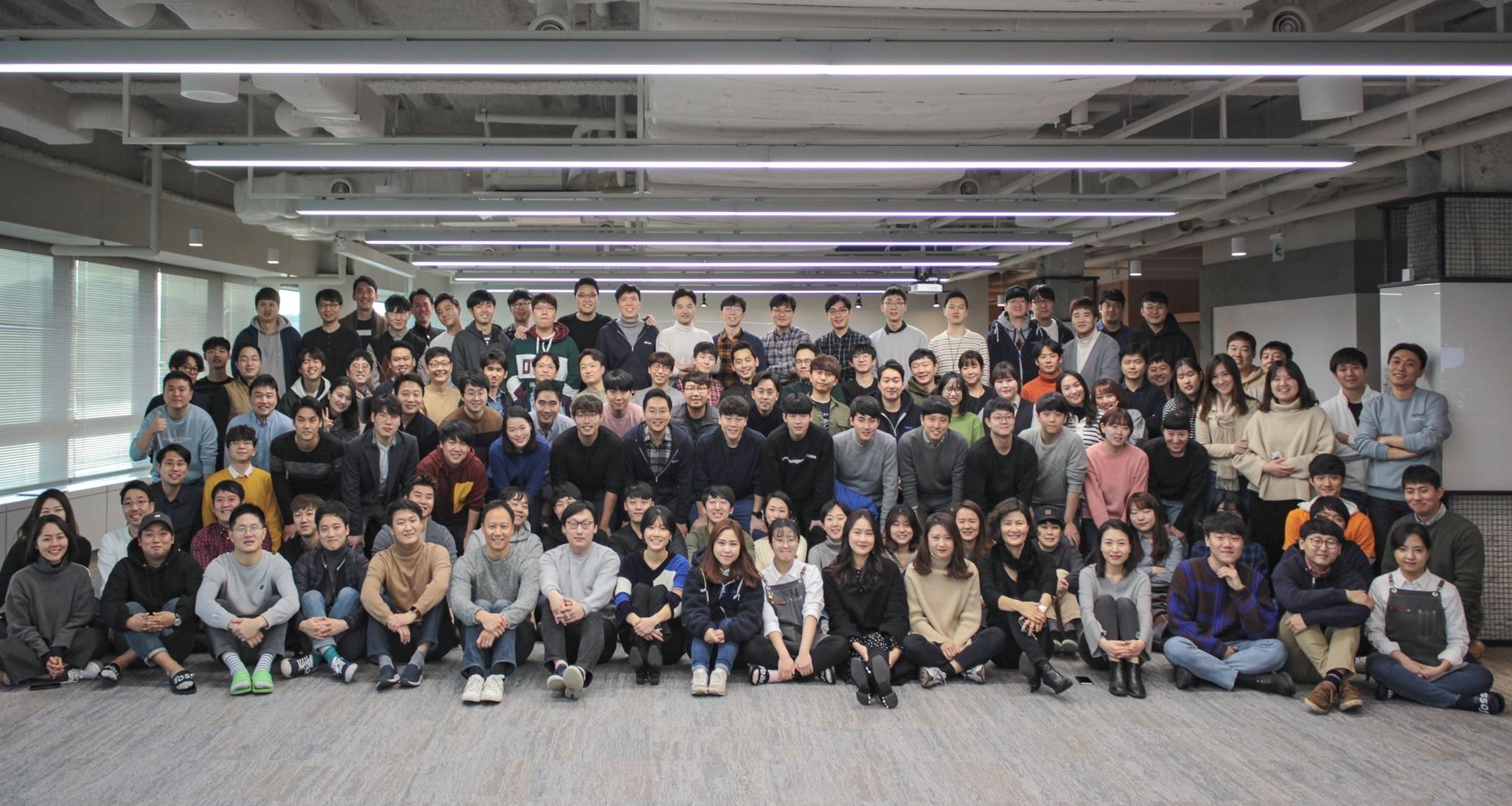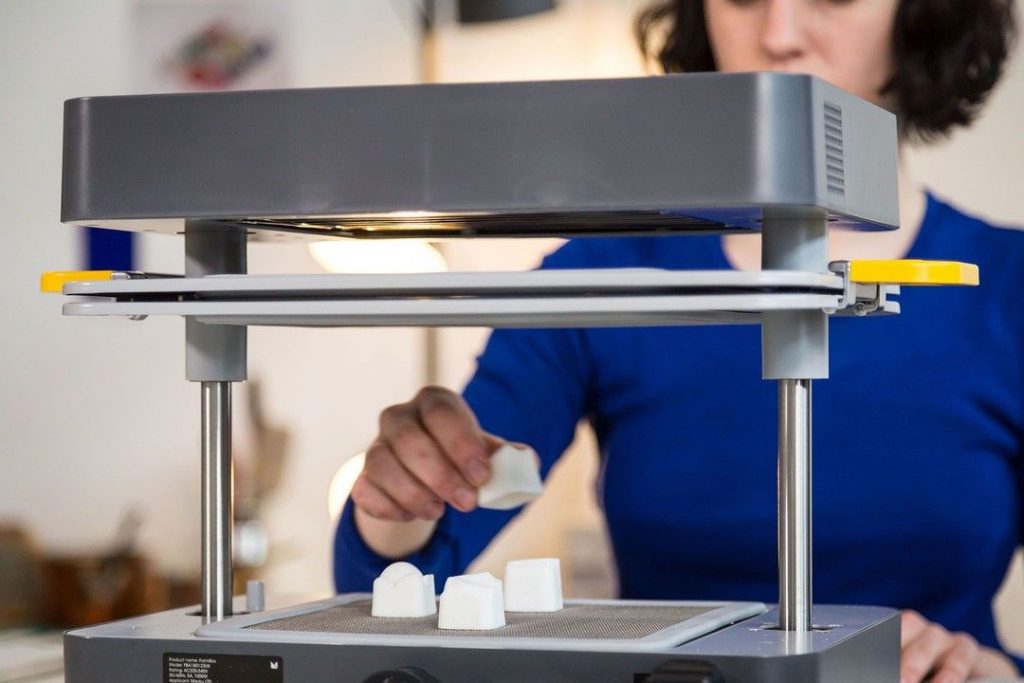
Salesforce Ventures made its inaugural investment in Latin America in RunaHR, a payroll automation platform, in a US$3.5m seed round that included Y Combinator, the founder of Gmail, CTO of Dropbox, executives of Rappi, Nubank, Cabify and WeWork Latin America, and HR experts including the CTO of Zenefits, former Head Sales Head of Gusto and former Product Manager of Gusto.
(Press Release) Mexico City, June 5, 2018. Runa, the platform automating payroll in Latin America, cuts the time it takes to manage payroll and HR in half for SMBs. Only 5 months after its launch, the Silicon Valley- and Mexico-based startup is experiencing rapid adoption in Mexico.
The idea was born when Courtney McColgan, founder of Runa, experienced the complexity around people management in Latin America during her previous position as CMO of Cabify. It was difficult for her to obtain key employee information, and ensure her team was being paid on-time and correctly. Even with a dedicated HR department, it was impossible due to the limited solutions available in the market.
The goal was to create a system that was always up to date and that automated everything – payroll, employee information, incidents, contracts and reports. Something would be as easy-to-use as Facebook and as accessible in price as Gmail.
“Existing payroll software in Latin America is not built for the SMB. It is extremely difficult to use, requires a lot of manual processing and is very expensive. Our platform allows users to automate everything and do so with a much more pleasant interface and a much more modern technology,” comments Courtney McColgan, CEO of Runa.
In April, Runa closed a seed round of financing of $3.5 million dollars. Notable investors include Y-Combinator, the founder of Gmail, the CTO of Dropbox, the CTO of Zenefits and the executives of the largest startups in Latin America: Rappi, Nubank, Cabify and WeWork Latin America. It is also the first startup in in all of Latin America in which Salesforce Ventures has invested.
“The Latin America market is gigantic. There are 17.5 million SMBs regionally and 4.5 million in our first market, Mexico, “Courtney said. “Even more important, the market is completely greenfield. Runa is the first business software into SMBs after Gmail and Microsoft Office, so you can imagine the possibilities as we expand our product offering over the next five years. “
Runa officially launched as part of the Y-Combinator Winter 2018 batch in January 2018. During the following 8 weeks, they grew 150% week after week reporting 56 companies and $256K ARR on demo day. Currently, Runa is growing at 50% month-over-month.
Read More >>>
PayJoy, a startup that has developed smartphone technology to facilitate access to credit in emerging markets, has raised $20 million from venture capital firm Greylock Partners, the company said on Thursday.
Union Square Ventures, EchoVC and Core Innovation Capital also participated in the round, PayJoy said. The San Francisco-based startup said it will use the funding to expand, secure more partners and develop new technologies.
PayJoy enables consumers with no bank accounts or formal credit history to purchase smartphones on installment payments and get cash loans. It does so by turning the smartphone into collateral through software that locks the phone when payments have not been made.
It believes that making smartphones more affordable can be a stepping stone toward increasing financial inclusion since more financial services are now being provided digitally.
“We’re building technology to help people carve a path into the financial system,” Mark Heynen, the company’s co-founder and chief business officer, said in an interview.
Globally, 1.7 billion adults do not have a bank account, but two-thirds of them own a mobile phone which could help them access financial services, the World Bank said in a 2018 report.
Josh McFarland, a partner at Greylock, said he believes PayJoy’s technology and distribution network could help emerging markets unlock some of their economic growth.
“Credit is a major piece of the infrastructure needed to help the global middle class better their quality of life,” McFarland said.
PayJoy, which employs around 90 people globally, operates in more than 10 countries including Mexico, India, Indonesia, Nigeria, Kenya and Guatemala. In most markets the startup does not provide financing itself, but partners with retailers and credit providers. Partners include Telefonica, Vodacom and Orange SA.
Read More >>>

Because this is America and we love cars and convenience, some banks offer drive-throughs, which typically come in one of three forms.
There’s the kind with a window and an actual human bank teller, the kind with an automated teller machine, and this reporter’s personal favorite: the pneumatic tubes. The whoosh of air, the satisfying thump of a capsule coming to a halt, a lollipop that comes with your transaction receipt because you lied and said there was a kid in the car. It’s all a delight.
Hyperloop is an open-source transportation technology built around that same tube and capsule concept. Except instead of checks and suckers, its capsules are scaled to carry people and freight.
And rather than using air pressure to propel capsules through a tube, Hyperloop’s design requires reducing intra-tube air pressure to a near vacuum. This reduces air resistance, which, in turn, means that capsules can hurtle down the tunnels at phenomenal speed: up to 600 miles per hour.
Virgin Hyperloop One is one of several companies working to commercialize the open-sourced specifications for hyperloop tech, which was originally published by a joint team of Tesla and SpaceX engineers in 2013. Somewhat unsurprisingly, it takes a lot of capital to get a mass transit infrastructure company off the ground, which is why Virgin Hyperloop One appears to be raising additional cash.
According to paperwork filed with the Securities and Exchange Commission (SEC) on Tuesday, Hyperloop Technologies, Inc. (doing business as “Virgin Hyperloop One”) disclosed its intent to raise nearly $225 million in new equity funding. The filing states that the company has already secured $172.2 million, leaving $52.5 million in the equity offering as-yet unsold. So far, 80 investors contributed to Virgin Hyperloop One’s round.
Read More >>>

Farmers markets have become a staple presence in many US cities, where there is a steady supply of smaller, often organic farmers and other food producers wanting a more direct channel to sell their goods, and a steady demand from foody types who like having the option of bypassing bigger grocery stores to amble around a group of stalls with a wider choice of items to cook and eat. Now, one of the startups that has turned that model into a profitable on-demand delivery business has raised some funding as it continues its expansion in the US, and beyond, en route to an IPO filing, potentially as soon as this year.
GrubMarket, which works with smaller farms and other suppliers to sell and deliver their items by way of its online store both to businesses — such as restaurants and stores of different sizes, as well as the plethora of food startups that prepare food for consumers — and consumers, has raised $25 million in an oversubscribed C1 round of funding (it was originally only going to be $15 million). (May 2019 update: ultimately the round actually closed at $28 million.)
The investment is being led by WI Harper Group and Digital Garage, with participation from other new investors Evolv Ventures, University Growth Fund, Arancia International Inc, CentreGold Capital and existing investors ACE & Company, GGV Capital, Fusion Fund, Bascom Ventures, along with other unnamed participants.
Mike Xu, GrubMarket’s CEO and founder, would not comment on its valuation, but starting from its earliest days as a member of the Winter 2015 cohort of Y Combinator, the startup has raised $89 million. And according to PitchBook figures — which we have confirmed with a close source are largely accurate — the pre-money valuation in this round was $230 million, which would put the post-money at around $255 million.
Xu said the company is currently operating on a $150 million annual run rate — versus $100 million when it raised $32 million nine months ago — and it continues to be profitable. Because of this, Xu said GrubMarket doesn’t need any working capital. It plans to use this $25 million instead to invest in more technology and acquisitions.
Read More>>>
Mollybox, a Shanghai, China-based pet food brand run by Xolo (Cayman) Limited, secured a total of $13m in its Series B financing round.
The round was co-led by DCM and Mars backed venture capital Digitalis, with participation from Unity Ventures, Digitalis Ventures, Seek Ventures, FJ Labs, Tekton Ventures, and Long Capital.
Led by Ju Yi, founder and CEO, Mollybox is a subscription-based service providing cat litter and food and sending to owners a “Surprise Box” every month filled with various kinds of cat snacks and nutrition products to explore new products.
The company has a total of 30,000 subscribers who are receiving its products.
A single box, its main product, contains staple food, snacks and toys. Users of the service can purchase monthly, quarterly and annual subscriptions.
In 2016, Mollybox received RMB 2 million in its angel round from Unity Ventures, and in 2017 landed RMB 4.2 million in pre-A round from Unity Ventures, Long Capital and Hexi Capital.
In January 2018, the company completed its Series A financing with $3.8 million investment from DCM, Atom Ventures and Unity Ventures.
Read More >>>

By Chalida Ekvitthayavechnukul
Memebox, a Korean online beauty marketplace startup, has closed a $35-million Series D round led by new strategic investor JJDC Inc, according to the company’s announcement last Thursday. This round marks the Korean startup’s first strategic investment and brings its total funding to $190 million. Memebox said that it will work with JJDC, the venture capital arm of Johnson & Johnson, to access the global market. “We want to build the next generation of personal care brands by leveraging Korean technology across beauty categories… We will leverage JJDC’s global capabilities and scientific expertise which will enable us to take a big step forward in our focus on innovation, R&D, and ultimately, reaching a global audience,” said Memebox founder and CEO Hyungseok Dino Ha.
Read More>>>

Mumbai-based ecommerce platform for buying and selling used cars, Truebil, has raised INR 100 Cr ($14 Mn) in a mix of equity and debt Series B funding round led by Japanese investor Joe Hirao, as the company plans to foray across five other Indian cities and strengthen its technology-based stack.
In the startup’s latest funding round, Kalaari Capital, Inventus Capital, Kae, Shunwei Capital, and Tekton had also participated, with Merisis Advisors as an investment banker.
With the latest funding, Paix Technology-owned Truebil has announced its total funding to have reached INR 160 Cr ($22.4 Mn). The company had announced revenue of INR 50 Cr ($7 Mn) for the FY 2017-18, and aims to generate 5x growth in revenue for the current fiscal.
Truebil was founded in March 2015 by Suraj Kalwani, Himanshu Singhal, Rakesh Raman, Ravi Chirania, Ritesh Pandey, Shanu Vivek, and Shubh Bansal. It offers an ample choice for its customers, providing a detailed report of each car to help them make informed purchase decisions.
Read More>>>

Outdoorsy is building for the road ahead. The three-year-old company, which connects customers with underused RVs and other trucks big enough to camp in overnight, just raised $50 million in Series C funding led by Greenspring Associates, with participation from earlier backers Aviva Ventures, Altos Ventures, AutoTech Ventures and Tandem Capital. That puts its total funding, in less than a year’s time, at $75 million. (We’d separately reported on its $25 million Series B round last February. It has now raised $81.5 million altogether.) It’s easy to understand why investors are excited about Outdoorsy, which moved its headquarters from the Bay Area to Austin six months ago, partly to get closer to its base of customers, as well as to take advantage of attractive tax incentives. The company is capitalizing on a global trend of millennials who want to stay overnight at places other than hotels, which can be pricey and based in commercial districts that can’t provide the same experience of staying in a neighborhood. Yet Outdoorsy is taking things a step further, so to speak. As co-founder and CEO Jeff Cavins notes, even with Airbnbs seemingly everywhere, there remain plenty of places where it makes even more sense to rent an RV and set up a grill, including at a beach, beside a lake or right outside events like musical festivals and car races. That’s saying nothing of traditional camping spots, like Yosemite and Yellowstone Valley. It’s easier than ever thanks largely to Outdoorsy, too, says Cavins. Earlier on, the company logged serious time with outfits like Aviva, a British insurance company that is not only an Outdoorsy investor at this point but which was convinced by Outdoorsy to create an insurance product expressly to cover RVs as distinct from more accident-prone vehicles with which they’ve long been lumped, like dune buggies.

LemonBox, a Chinese e-commerce startup that imports vitamins and health products from the U.S., has raised $2 million to develop its business.
The company graduated from Y Combinator’s most recent program in the U.S. and, fueled by the demo day, has pulled in the new capital from 10 investors, which include Partech, Tekton Ventures, Cathexis Ventures, Scrum Ventures and 122 West Ventures.
LemonBox started when co-founder and CEO Derek Weng, a former employee at Walmart in the U.S., saw an opportunity to organize the common practice of bringing health products back in China. Any Mainland Chinese person who has lived in, or even just visited, the U.S. will be familiar with such requests from family and friends, and LemonBox aims to make it possible for anyone in China to get U.S.-quality products without relying on a mule.
The service is primarily a WeChat app — which taps into China’s ubiquitous messaging platform — and a website, although Weng told TechCrunch in an interview this week that the company is contemplating a standalone app of its own. The benefit of that, beyond a potentially more engaging customer experience, could be to broaden LemonBox’s product selection and use data to offer a more customized selection of products. Related to that, LemonBox said it hopes to work with health and fitness-related services in the future to gather data, with permission, to help refine the personal approach.
Read More>>>

By
BTJ Logistics Pvt. Ltd, which runs tech-enabled logistics startup Freightwalla, has raised an undisclosed sum from venture capital firms Kae Capital and San Francisco-based Tekton Ventures, a company statement said.
The startup said it will use the capital to push sales, improve operations and to further develop its technology platform, the statement added.
Freightwalla was founded in 2016 by Sanjay Bhatia, a former PwC executive, Bharat Thanvi, a supply chain management executive, and Punit Java, a former Amazon and Microsoft executive.
The company offers enterprises a technology-based platform to plan, book and manage their international freight shipments online.
“By offering our services as a technology-enabled forwarder, we are able to transform the experience for our customers at every step of the process, from planning shipments, to automating document workflows and providing key insights into their operations. We have been able to cut down the time involved in planning shipments by up to 80% whilst saving an average of 20% on the cost of a shipment to our clients,” said Bhatia in the statement.
Read More>>>

South Korea has its fourth unicorn startup after Viva Republica, the company beyond popular payment app Toss, announced it has raised an $80 million round at a valuation of $1.2 billion.
This new round is led by U.S. firms Kleiner Perkins and Ribbit Capital, both of which cut their first checks for Korea with this deal. Others participating include existing investors Altos Ventures, Bessemer Venture Partners, Goodwater Capital, KTB Network, Novel, PayPal and Qualcomm Ventures. The deal comes just six months after Viva Republica raised $40 million to accelerate growth, and it takes the company to nearly $200 million raised from investors to date.
Toss was started in 2015 by former dentist SG Lee who grew frustrated by the cumbersome way online payments worked in Korea. Despite the fact that the country has one of the highest smartphone penetration rates in the world and is a top user of credit cards, the process required more than a dozen steps and came with limits.
“Before Toss, users required five passwords and around 37 clicks to transfer $10. With Toss users need just one password and three steps to transfer up to KRW 500,000 ($430),” Lee said in a past statement.

China is rising in many ways — the economy, consumer spending and technology — but still many of its population looks overseas, and particularly to the West, for cues on lifestyle and health. That’s a theme that’s being seized by LemonBox, a China-U.S. startup that lets Chinese consumers buy U.S. health products at affordable prices.
Indeed, the recent scare around Chinese vaccinations, which saw faulty inoculations given to babies and toddlers in a number of provinces, has only fueled demand for overseas health products which LemonBox founder Derek Weng discovered himself when his father was diagnosed as having high blood sugar levels. Weng, then working in the U.S. for Walmart, was able to look up and buy the right medicine pills for his father and bring them back to China himself. He realized, however, that others are not so fortunate.

UK based startup Mayku, with its desktop vacuum forming machine, is empowering makers to do more with their 3D printers. Compact and easy to use, the FormBox system can be used to make a variety of molds, for concrete and plaster casting, soap making and chocolate craft, or packaging for figurines and other handmade items. In many ways, it is the final professional touch makers need when attempting to create a business from their DIY products.
At 3D Printing Industry, the engineering team have reviewed the Mayku FormBox in terms of its ease-of-use, material versatility, and application over a variety of different objects ranging in size and complexity.
The FormBox safety setup
The FormBox thermoformer is delivered as a fully assembled system. The starter package for the machine includes: a universal vacuum adapter, detailed manual, three sample-formed objects, 15 Form Sheets of white HIPs, 15 Cast Sheets of transparent, food-safe PETG, and 1kg of castable plaster to try some first casts.
For setup, the user only need attach their own vacuum cleaner, a task facilitated by Makyu’s universal adapter. To start the first mold, a sheet of selected plastic is clipped into the sliding tray at the base of the machine. Then the heat and melting time is set by the corresponding dials on the front, and the user lifts the tray up to the ceramic heater at the top.
Timer settings are given in 20 second increments, and heater settings from 1 – 6. For each sheet of material the manual outlines the respective settings required to reach near-melting point. By simplifying this stage of the process, Makyu serves to help reduce user error.
When heating, the user is required to place the object-to-be-formed at the center of the lower vacuum plate (200mm x x200mm). Once at temperature, the tray containing the plastic is moved down in a single, steady movement. After counting down the timer, the FormBox then automatically shuts off the vacuum, and the plastic is left to cool and harden.
In one final step, all the user has to do is remove the formed object from the mold, with a little wiggling and sometimes help from a flat-head screwdriver for leverage. The mold is then ready to use.
READ MORE>>>

By Selina Wang Updated on
- The deal is said to push Coupang’s valuation to $9 billion.
- Coupang expects nearly $5 billion in revenue by year-end
SoftBank Group Corp.’s Vision Fund will invest $2 billion in South Korea’s Coupang, giving the e-commerce giant funds to accelerate development of new shopping and delivery services.
Coupang, founded in 2010, is Korea’s largest online retailer, selling more than 120 million items from consumer electronics to food. The Seoul-based company says that half of Korea’s population has downloaded its mobile app.
The deal marks another enormous bet on e-commerce for SoftBank founder Masayoshi Son, who made a fortune backing Alibaba Group Holding Ltd. before it turned into China’s dominant provider. SoftBank put an initial $1 billion investment into Coupang in 2015, valuing it at $5 billion, according to people familiar with the matter. The valuation in the current deal is $9 billion post-money, or after the additional capital is included, the people said.
“Masa is a visionary leader. He’s always challenged us to think big,” said Bom Kim, founder and chief executive officer. “This round came from understanding that what we’ve built is now the foundation for immense impact on customers.”
Read More>>>

Fastwork, an online freelancing platform with operations in Thailand and Indonesia, announced today it has secured US$4.8 million in Series A financing round led by regional venture capital firm Gobi Partners.
Vickers Venture Partners, LINE Ventures, Tekton Ventures and Partech Partners also joined the round, which brings Fastwork’s total amount raised to date to US$5.5 million.
“SMEs are growing at an unprecedented pace in the region’s emerging markets, and as a result there’s a lack of skilled talent to support their growth. Thus, freelancing platforms, like Fastwork, are heavily sought after for their ability to bridge between SMEs and freelancers/outsourcing agencies,” Gobi’s Venture Partner, Arya Masagung, said.
Fastwork was started in 2015 by a group of engineers and entrepreneurs from Silicon Valley and New York with a mission to help businesses and employers in Southeast Asia to find and hire freelancers. The startup said in a press note that more than 300,000 businesses across the region use its platform for nearly 22,000 services ranging from graphic design, online & influencer marketing, data entry, to web & app development.
As for freelancers, the platform enables to collect payments, promote their services, manage their orders, exchange files and communicate with their clients anywhere, anytime.
Read More>>>
The Thursday Boot Company prides itself on high quality footwear at honest prices. Based out of and “bootstrapped” in New York City, Thursday Boots have made a name for themselves over the past few years.
In this in-depth Thursday Boots review, I’m going to talk a little bit about the brand — cover 3 of their popular boot styles — specifically the quality & craftsmanship, comfort & durability, shoe sizing & price, the pros & cons and most importantly how they’ve held up over 2 years of wear.
Thursday Boots specialize in high-quality boots at affordable prices, direct to consumer. A few months ago they began offering all kinds of dress shoes from wingtips and loafers to wholecuts.
Thursday was an idea conceived on a Nicaraguan surf trip three years ago of all places. Today Thursday Boots are worn in all 50 states and nearly 60 countries.
As for the name, “Thursday” is the unofficial start to the weekend and is the one day of the week where you have to be ready for anything — work, drinks, a date — and so their products are designed with that versatility in mind.
Read More >>>

Uber may be global but it is very much the alternative in some parts of the world. One such place is Bangladesh — the South Asian country that’s home to 160 million people — where local rival Pathao is backed by Go-Jek and recently raised $10 million. Now Pathao’s closest rival, Shohoz, has also pulled in investment after it closed a $15 million funding round.
Shohoz — which means ‘easy’ in Bengali — started in 2014 offering online bus ticket sales before expanding into other tickets like ferries. The startup moved into on-demand services in January when it added motorbikes and then it recently introduced private cars. CEO Maliha Quadir told TechCrunch that it is now registering one million completed rides per month as it bids to “simplify” life in capital city Dhaka, which houses over 18 million people and offers limited transport options.
“Bus tickets will remain an important part of our business, [there’s] lots of synergy with ride-sharing,” she explained in an interview. “Dhaka has a super dense population with bad infrastructure, if anything there’s a better case for ride-sharing than Indonesia… there’s no subway and transport is a horrid nightmare.”
Singapore-based Golden Gate Ventures — which recently closed a $100 million fund — led the new Shohoz round. Linear VC of China, Tekton Ventures, Partech Partners, 500 Startups and Singaporean-based angel investor Koh Boon Hwee also took part.
Read More>>>

Atrium is announcing on Monday that it has raised $65 million in a round led by Andreessen Horowitz, with Y Combinator’s Continuity Fund, Sound Ventures and General Catalyst joining the round.
The funding comes as Atrium has helped some of tech’s fastest-growing companies raise a combined $500 million, including scooter company Bird, Alto, MessageBird and Sift Science—250 clients overall. Atrium served as the law firm for each, providing a lawyer on the customer end and using technology to automate some of the related filings under the hood. The startup will use the funding to hire more employees on both its legal services and technical sides.
“This was a problem I’d seen in my own experiences, where all these parts around legal were like a blocker to what I wanted to do, and the legal bills felt like Russian roulette,” says Kan. “It’s almost like a tax you have as a business owner. That’s why I wanted to attack this problem.”
Founded in mid-2017 after Kan left Y Combinator to do a startup incubator, Atrium’s full stack law firm approach means that it’s got an unusual mix of legal-trained employees, business operations professionals and engineers. Kan’s cofounders Augie Rakow and Nick Cortes come from backgrounds at law firm Orrick, where Rakow represented Cruise in its $1 billion acquisition by GM, and McKinsey.
Read More>>>

LinkShops (CEO: Kyeong-mi SEO), an online shopping mall for DDM (Dongdaemun Market: located in Jongno-Gu, Seoul, Korea), has updated its service to make the shopping experience more convenient and efficient.
Customers can place their orders through the website or mobile app and receive their purchased products within a day, all without having to visit the Dongdaemun Market themselves.
The recent updates of LinkShops include: downloading and organizing the online purchase order lists through excel, managing the amount of stock and coordinating with the pre-order service, advanced-browsing for the past orders, and grouping the individual purchases in one receipt.
Furthermore, this upgraded online shopping platform focused on resolving the frequently encountered issue of ‘out of stock.’ By coordinating with its product -managing team, LinkShops can now regularly monitor the amount of wholesale stock and determine when the products will be restocked when there is a shortage. The relevant retail dealers are immediately informed so that the customers can place their pre-orders or get their refunds right away.
In addition, some customers may have experienced the inconvenience in issuing multiple receipts when purchasing goods from different stores. With LinkShops, the customers can view the complete list of their orders on a single receipt.
“DDM is known for its hands-on businesses where the wholesale merchants and retail dealers actively and directly engage in the transaction processes. In that sense, our company aims to provide a more convenient and efficient service for both parties,” the company’s vice-chairman, Young-Ji OH, commented.
Read More>>>
Wipro Ltd. Chairman Azim Premji is backing another U.S. startup, leading a $100 million round in e-commerce fraud-prevention company Signifyd.
The Indian tech titan’s personal investing vehicle Premji Invest led the deal, valuing the seven-year-old company at roughly $400 million, according to a person with knowledge of the deal, who asked to remain anonymous because the details are private.
The cash infusion is the latest in a line of similar late-stage bets by the fund, including business software companies Apttus Corp. and Anaplan Inc. It also marks a major inflection point for Signifyd Inc. which aims to help e-commerce sites stem fraud and reduce the number of legitimate transactions that are improperly declined.
The San Jose, California-based company plans to double its staff to 320 and open an office in Barcelona during the next year, Co-Founder and Chief Executive Officer Raj Ramanand said.
Like competitors Forter Inc., Riskified Ltd. and others, Signifyd makes software that analyzes online transactions for fraud. It pulls in additional data, including the length of time an email address has been in use, the number of social media contacts connected to a potential customer and the type of device being used. It then uses that information to identify potential shysters and green-light ones that don’t fit a standard profile, but that Signifyd still deems as legitimate.
For example, one bicycle seller was declining roughly 30% of its transactions because the billing and shipping addresses didn’t match, Ramanand said. Upon further analysis of timing (almost all the purchases in question were made in August and September), home values and the like, Signifyd determined these were mostly parents purchasing bikes for their kids starting college. The company’s software approved the transactions and the bike shop recouped revenue, he said.
Read More>>>

